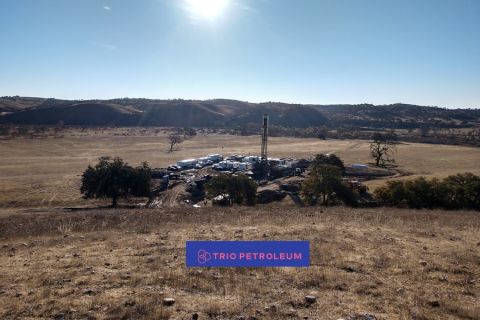[Editor's note: This story was updated from a previous version posted at 6:55 a.m. CST Dec. 26.]
Exxon Mobil Corp. (NYSE: XOM) said Dec. 26 its oil drilling and development activities offshore Guyana were unaffected despite neighboring Venezuela's navy stopping two seismic survey vessels the company had hired.
The closest of 10 oil finds Exxon Mobil has made off Guyana's coast is 110 km (68 miles) away from the northwest part of the Stabroek block, where the navy halted seismic data collection on Dec. 22, the company said. Each country's government says the incident took place in its territorial waters.
"Exploration and development drilling is continuing in the southeast area of the Stabroek Block," the company said in a statement. Exxon Mobil did not say whether the two vessels, owned by Norway's Petroleum Geo-Services ASA (PGS), planned to continue their survey or return to the area where the incident occurred.
RELATED: ExxonMobil Makes 10th Discovery Offshore Guyana
There were two PGS ships involved in the confrontation, the Ramform Tethys and Delta Monarch, Bard Stenberg, a PGS senior vice president, said Dec. 24.
"A couple hours later we learned that the Venezuelan navy had withdrawn from the area," Stenberg added.
On Dec. 24, shares in U.S. oil company Hess Corp. (NYSE HES), which owns a 30% stake in the Guyana project, fell more than 12% to close at $36.43, their sharpest single-session drop since early 2016. Markets were closed on Dec. 25 for the Christmas holiday.
Shares in Exxon Mobil, which operates the project and owns 45%, fell 3.8% on Dec. 24. Meanwhile, depositary receipts for China's CNOOC Ltd. (NYSE: CEO), which owns 25%, fell 2%.
Guyana's foreign minister said the government is "in discussion" with Exxon Mobil on next steps.
A century-long territorial dispute between the neighboring South American countries has flared up after Exxon Mobil announced the discovery of more than 5 billion barrels of oil and gas offshore Guyana.
Critics of Venezuela's socialist President Nicolas Maduro say he has rekindled tensions with its eastern neighbor over the Essequibo region, a sparsely populated area making up two-thirds of Guyana's territory that is also claimed by Venezuela, to distract from a severe economic crisis in the OPEC-member nation.
Venezuela is home to the world's largest crude reserves, but production is hovering near its lowest levels in 70 years due to underinvestment, hyperinflation, and mismanagement under military control of the company.
The Dec. 22 confrontation recalled an October 2013 incident when Venezuela's navy seized a ship carrying out a seabed survey for Texas-based Anadarko Petroleum Corp. (NYSE: APC) in Guyana, accusing it of violating its maritime territory. Venezuela freed the vessel a week later.
In response to the most recent event, the U.S. State Department said Venezuela had behaved "aggressively" and called on the country to "respect international law and the rights of its neighbors."
Venezuela's foreign ministry on Dec. 25 described the comments as "interventionist and disrespectful."
"It is evident that the U.S. government is interfering in a matter that is not at all incumbent upon it, with the goal of promoting corporate interests closely linked to the Washington ruling elite," the foreign ministry said in a statement.
Maduro has accused the U.S. of plotting to invade Venezuela and overthrow his government, while Washington has placed sanctions on Venezuela's debt and members of Maduro's government over accusations of corruption, human rights violations and election-rigging.
Recommended Reading
Exxon Mobil Guyana Awards Two Contracts for its Whiptail Project
2024-04-16 - Exxon Mobil Guyana awarded Strohm and TechnipFMC with contracts for its Whiptail Project located offshore in Guyana’s Stabroek Block.
Deepwater Roundup 2024: Offshore Europe, Middle East
2024-04-16 - Part three of Hart Energy’s 2024 Deepwater Roundup takes a look at Europe and the Middle East. Aphrodite, Cyprus’ first offshore project looks to come online in 2027 and Phase 2 of TPAO-operated Sakarya Field looks to come onstream the following year.
E&P Highlights: April 15, 2024
2024-04-15 - Here’s a roundup of the latest E&P headlines, including an ultra-deepwater discovery and new contract awards.
Trio Petroleum to Increase Monterey County Oil Production
2024-04-15 - Trio Petroleum’s HH-1 well in McCool Ranch and the HV-3A well in the Presidents Field collectively produce about 75 bbl/d.
Trillion Energy Begins SASB Revitalization Project
2024-04-15 - Trillion Energy reported 49 m of new gas pay will be perforated in four wells.





